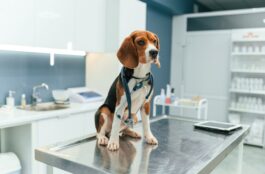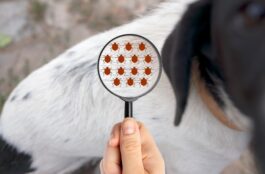
Discovering that your pet has ingested a poisonous substance can be a terrifying experience. Immediate action is crucial to ensure their safety and well-being. Knowing the steps to take in such an emergency will help you stay calm and effectively assist your pet. This guide will provide essential instructions on recognizing symptoms, contacting professionals, and performing first aid to save your pet’s life potentially.
Poisons can come from various sources, including household chemicals, plants, foods, and medications. Recognizing the signs of poisoning and knowing the appropriate steps can significantly impact your pet’s outcome. Here’s a detailed guide on what to do if you suspect your pet has ingested something harmful.
1. Remain Calm
The first and most crucial step is to stay calm. Panicking can create additional stress for you and your pet, potentially worsening the situation. Take a deep breath and focus on the actions you need to take. A calm demeanor will help you think clearly and act efficiently, which is vital during an emergency.
2. Identify the Poison
Gather as much information as possible about the substance your pet has ingested. Look for any packaging, labels, or remnants of the substance that could provide clues. If you can identify the poison, it will significantly assist veterinarians in determining the appropriate treatment. Common poisons include certain medications, household cleaners, antifreeze, and some plants. If the exact substance is unknown, describe any symptoms and the circumstances of the exposure to your vet.
3. Contact Your Veterinarian
Reach out to your veterinarian or an emergency animal clinic immediately. If you’re in Sonoma County, consider contacting a Santa Rosa emergency vet. Provide them with detailed information about the substance, the quantity ingested, and the time of ingestion. Your vet will assess the situation and guide you on the next steps. They may advise you to bring your pet in for an examination or provide instructions for initial care at home.
4. Call a Poison Control Hotline
For expert guidance, contact a pet poison control hotline. The ASPCA Animal Poison Control Center (APCC) and the Pet Poison Helpline are available 24/7 for professional advice on managing poisoning cases. They can provide specific recommendations based on the type of poison and your pet’s condition. Remember that there may be a fee for these services, but the advice provided is crucial in managing the situation effectively.
5. Induce Vomiting Only If Advised
Do not attempt to induce vomiting unless specifically instructed to do so by a veterinarian or poison control expert. Inducing vomiting can be dangerous if the ingested substance is corrosive or sharp or if the pet is unconscious, having seizures, or showing signs of distress. Follow professional advice to ensure that inducing vomiting is safe and appropriate for your pet’s specific situation.
6. Follow Veterinary Instructions
Once at the veterinarian in Santa Rosa, carefully follow all instructions provided by the veterinarian. They will perform necessary tests, administer treatments, and provide specific care instructions based on the type and severity of the poisoning. Adhering to their guidance is crucial for your pet’s recovery and ensures all necessary steps are taken to address the poisoning.
7. Transport Your Pet Safely
If instructed to bring your pet to the veterinarian or emergency clinic, transport them safely and comfortably. Ensure that your pet is secured and calm during the journey. Bring any remaining packaging or labels of the poisonous substance with you to provide the veterinarian with additional information. Quick and safe transportation can make a significant difference in the effectiveness of the treatment.
8. Monitor Your Pet’s Symptoms
Keep a close watch on your pet for any signs of poisoning, including vomiting, diarrhea, lethargy, difficulty breathing, seizures, or behavioral changes. Document these symptoms and report them to your veterinarian. Accurate symptom tracking can help the vet diagnose the problem more effectively and tailor the treatment to your pet’s needs.
9. Administer Activated Charcoal If Advised
A veterinarian or poison control expert may recommend activated charcoal to help absorb toxins from the gastrointestinal tract. However, do not administer charcoal without guidance, as it is unsuitable for all types of poisoning. The dosage and administration method must be carefully followed to avoid complications. Activated charcoal can effectively prevent toxins’ absorption but must be used correctly to be beneficial.
10. Prevent Future Incidents
After addressing the immediate situation, take proactive steps to prevent future poisonings. Store toxic substances securely out of reach of pets, educate yourself about common household toxins, and be aware of plants and foods that are harmful to animals. Regularly review and update your home environment to eliminate potential hazards, ensuring a safer living space for your pet. Additionally, keeping up with pet vaccinations is crucial as they can prevent diseases that might exacerbate the effects of toxins.
Final Thoughts
Dealing with a pet that ingested a poisonous substance requires swift and informed action. You can significantly improve your pet’s chances of recovery by staying calm, identifying the poison, contacting professionals, and following their advice. Prevention plays a key role—taking steps to safeguard your home and understanding potential risks can protect your pet from future poisoning incidents. Acting quickly and effectively ensures your pet’s health and well-being.


